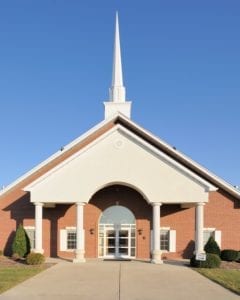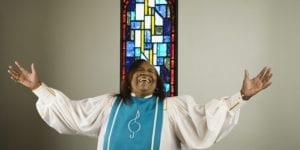 Visitors are naturally amazed at the variety of Florida’s palm trees. There are over twenty five hundred palm species in the world and many are grown right here. They share a family resemblance, but they also exhibit an astonishing diversity. Similarly, while looking for a Christian community in South Florida, one will find a breathtaking array of traditions, denominations and styles of church life. There are family resemblances around Christ and the gospel, but the many differences are striking.
Visitors are naturally amazed at the variety of Florida’s palm trees. There are over twenty five hundred palm species in the world and many are grown right here. They share a family resemblance, but they also exhibit an astonishing diversity. Similarly, while looking for a Christian community in South Florida, one will find a breathtaking array of traditions, denominations and styles of church life. There are family resemblances around Christ and the gospel, but the many differences are striking.
Christianity’s long history has produced a range of church expressions including Roman Catholic, Eastern Orthodox and Protestant. A collage of churches makes up the evangelicals: Lutheran, Anglican/Episcopalian, Presbyterian, Methodist, Baptist, Pentecostal and many others. These are all found in the greater Miami area.
Modern shifts in worship have overlaid these churches with a spectrum of styles, from high tech and contemporary to conservative and traditional, with every imaginable mix in between.
Diversity in the Church
On top of this, our country has been undergoing a rapid racial and ethnic change that is arguably unique in human history. South Florida has been at the forefront of this transformation, resulting in even greater diversification of Christian communities.
There is also a theological cause. The wonderful mosaic of church life springs from the good news of what the Father is doing in Christ, even as the Holy Spirit shapes all human varieties into the one people of God. From its very inception the Body of Christ has been an expression of human diversity. When the Church was born in Jerusalem, Jewish people had come from all over the empire to celebrate Pentecost. They heard the gospel in the languages of the places where they had settled. It was the tower of Babel in reverse: the confusion of tongues was being removed by the message of salvation.
Jesus and his disciples spoke in Palestinian Aramaic, but the message quickly spread to the Gentile world. When the New Testament was written, it was in Greek, the common language. The gospel was translatable. Soon the Church spread far and wide. Everywhere the gospel went, it found expression, not only in local languages but also in cultural varieties. Today these church expressions have washed and mingled onto the shores of South Florida.
Under construction
This does not mean that anything goes, or that all churches are equally sound. True churches are works in progress – construction sites, if you will. Jesus said, “I will build my church and the gates of hell will not overcome it.” Churches must always strive for maturity, balance, and spiritual vitality –always reforming themselves in the light of God’s Word (as those of the Reformed tradition remind us). This means that we must relate to one another wisely as we pray and work for both unity and fidelity.
There are many other reasons to celebrate our diversity and to appreciate one another. It honors the work of the Holy Spirit. The Church is the people of God who have been saved through repentance and faith and have been incorporated into the Body of Christ by God’s Spirit. The Spirit is at work bringing the Church into existence, gifting God’s people, and empowering them complete Christ’s mission. When we appreciate the various church traditions, we honor this work of the Spirit.
Engaging one another in healthy ways also fulfills our vocation. Christians are called to bear witness about the truth, not only to the world but also to one another. We build one another up in the faith. We do this mainly in our local churches, but we also have a responsibility to care for all our brothers and sisters in Christ.

A healthy balance
Finally other church traditions can serve as a safeguard against the danger of sectarianism. Just like a family can become ingrown and dysfunctional, our local churches can all too easily drift into an unhealthy sectarianism. This can even lead to cultic characteristics. By engaging wisely with other families, our own families find a better balance. By appreciating and learning from other faithful church traditions, our churches can more readily spot weaknesses and move forward in healthy ways.
Each tradition has something to add. The more liturgical churches remind us that we are part of a great tradition. We can learn from the rich historical treasures of creeds, liturgy and sacraments. The social justice churches remind us that the Bible mandates a passionate concern for the poor and oppressed. This too, along with the proclamation of the gospel, is part of kingdom work. The Spirit-filled traditions encourage us to live empowered by the same Spirit that filled our Savior. They call us to more fully be the community of that very Spirit that the Father and Son sent on the Day of Pentecost so long ago. This is the Spirit that empowers all of us to complete God’s global mission. Finally, the Word centered churches constantly call us back to the Bible. They remind us of the authority of God’s Word and of our need for its regular exposition in our churches.
One day we will all gather in the new creation. At that time the Church’s wonderful unity in diversity will be fully displayed: together people from every ethnic group, language and culture will, in all their variety, worship the Triune God who loved us and saved us (Revelation 5:9). May we learn to better appreciate that diversity even now.
Daniel J. Ebert IV, PhD, is Director of Graduate Programs and Affiliate Professor of NT at Trinity International University (Kendall) he can be reached at [email protected]


Comments